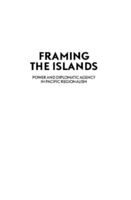Framing the Islands
Power and Diplomatic Agency in Pacific Regionalism
| dc.contributor.author | Fry, Greg | |
| dc.date.accessioned | 2019-12-12 13:53:37 | |
| dc.date.accessioned | 2020-04-01T09:23:02Z | |
| dc.date.available | 2020-04-01T09:23:02Z | |
| dc.date.issued | 2019 | |
| dc.identifier | 1006546 | |
| dc.identifier | OCN: 1135847949 | en_US |
| dc.identifier.uri | http://library.oapen.org/handle/20.500.12657/23600 | |
| dc.description.abstract | Since its origins in late eighteenth-century European thought, the idea of placing a regional frame around the Pacific islands has never been just an exercise in geographical mapping. This framing has always been a political exercise. Contending regional projects and visions have been part of a political struggle concerning how Pacific islanders should live their lives. Framing the Islands tells the story of this political struggle and its impact on the regional governance of key issues for the Pacific such as regional development, resource management, security, cultural identity, political agency, climate change and nuclear involvement. It tells this story in the context of a changing world order since the colonial period and of changing politics within the post-colonial states of the Pacific. Framing the Islands argues that Pacific regionalism has been politically significant for Pacific island states and societies. It demonstrates the power associated with the regional arena as a valued site for the negotiation of global ideas and processes around development, security and climate change. It also demonstrates the political significance associated with the role of Pacific regionalism as a diplomatic bloc in global affairs, and as a producer of powerful policy norms attached to funded programs. This study also challenges the expectation that Pacific regionalism largely serves hegemonic powers and that small islands states have little diplomatic agency in these contests. Pacific islanders have successfully promoted their own powerful normative framings of Oceania in the face of the attempted hegemonic impositions from outside the region; seen, for example, in the strong commitment to the ‘Blue Pacific continent’ framing as a guiding ideology for the policy work of the Pacific Islands Forum in the face of pressures to become part of Washington’s Indo-Pacific strategy. | |
| dc.language | English | |
| dc.subject.classification | thema EDItEUR::1 Place qualifiers::1M Australasia, Oceania, Pacific Islands, Atlantic Islands | en_US |
| dc.subject.classification | thema EDItEUR::N History and Archaeology::NH History::NHM Australasian and Pacific history | en_US |
| dc.subject.other | Pacific | |
| dc.subject.other | Diplomacy | |
| dc.subject.other | Regionalism | |
| dc.title | Framing the Islands | |
| dc.title.alternative | Power and Diplomatic Agency in Pacific Regionalism | |
| dc.type | book | |
| oapen.identifier.doi | 10.22459/FI.2019 | |
| oapen.relation.isPublishedBy | ddc8cc3f-dd57-40ef-b8d5-06f839686b71 | |
| oapen.relation.isbn | 9781760463151 | |
| oapen.pages | 418 | |
| oapen.identifier.ocn | 1135847949 |

